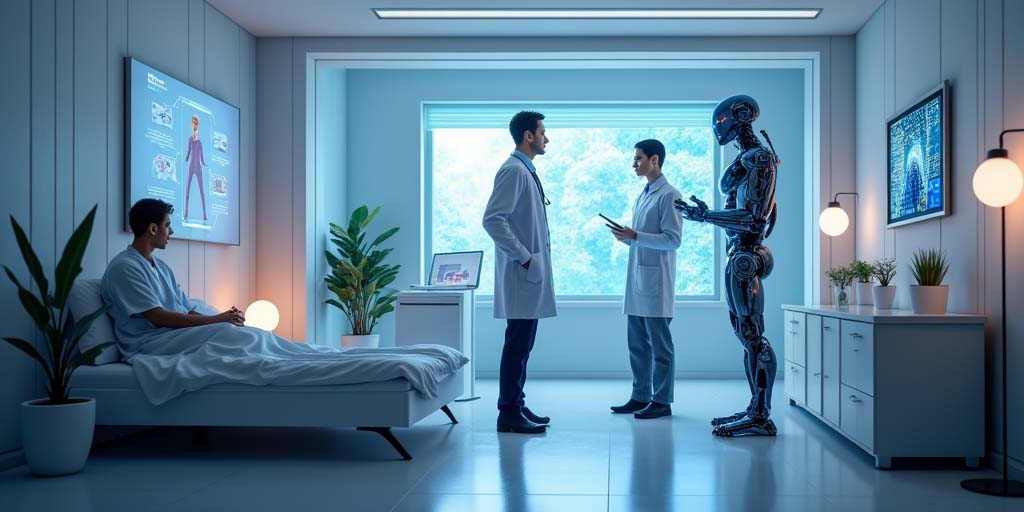2025 Healthcare Breakthroughs: Trends Revolutionizing Patient Care
The healthcare sector is witnessing an unprecedented era of innovation, with 2025 marking a significant milestone in how medical care is delivered. Advancements in technology, biomedicine, and patient care methodologies are reshaping the possibilities for treatment and management of diseases, enhancing the quality of life for millions around the globe. In this blog post, we will explore the key healthcare breakthroughs of 2025 that are revolutionizing patient care, offering deeper insights into each trend and how they are set to transform the healthcare landscape.
1. Personalized Medicine and Genomics
In 2025, personalized medicine has taken a front seat, driven by major advancements in genomics. The ability to analyze individual genetic profiles has transformed treatment plans into highly personalized care strategies. Diseases like cancer, Alzheimer’s, and rare genetic disorders are now treated more effectively by tailoring therapies to the specific genetic makeup of an individual.
For instance, the development of CRISPR gene-editing technology has been fine-tuned to correct genetic defects safely and more efficiently. Hospitals and research centers worldwide are adopting this technology to custom-design treatment plans that improve patient outcomes significantly.
2. Artificial Intelligence in Diagnosis and Treatment
Artificial Intelligence (AI) has become a cornerstone of modern medical diagnostics and treatment procedures. In 2025, AI-driven systems are capable of analyzing vast amounts of medical data, including medical records, imaging data, and genetic information, to assist in faster and more accurate diagnoses.
A notable example is the AI system developed by NeuroRad AI, which can diagnose neurological disorders within minutes with more than 98% accuracy. This tool not only speeds up the diagnostic process but also ensures early intervention, greatly improving the prognosis for patients.
3. Telemedicine and Remote Monitoring
The expansion of telemedicine has been one of the most transformative trends in 2025. With improved regulatory frameworks and technological advancements, healthcare professionals are able to provide care remotely in real-time. This is particularly crucial for patients in rural or underserved regions where access to healthcare facilities is limited.
Remote monitoring technologies have also advanced, with wearable devices now capable of tracking a wide range of physiological parameters. These devices transmit data directly to healthcare providers, facilitating ongoing management of chronic conditions like diabetes and heart disease without the need for frequent hospital visits.
4. Robotics in Surgical Procedures
Robotic technology in surgical procedures has reached new heights in 2025. These robotic systems offer high precision and control, significantly reducing the risks associated with traditional surgery. One of the standout innovations is the introduction of micro-robots capable of performing intricate surgeries that are otherwise highly challenging or impossible.
For example, the MicroBot Surgeon, a robotic system introduced in early 2025, has been successfully used in neurosurgical procedures to treat conditions that require extremely delicate intervention, such as removing tumors from sensitive brain areas.
5. Breakthroughs in Biotechnology: Regenerative Medicine
Regenerative medicine has seen significant breakthroughs, particularly in the development and use of stem cells and biocompatible materials to regenerate damaged tissues and organs. In 2025, techniques such as 3D bioprinting of tissues and organs are no longer just experimental but are part of standard medical care.
Patients with severe burns or those requiring organ transplants are benefiting enormously from these advancements. For instance, the BioPrint GX system is capable of printing skin grafts and organ tissues tailored to the patient’s specific dimensions and medical requirements.
6. Mental Health Innovations: Digital Therapeutics
Mental health care has embraced digital therapeutics, which use digital and often internet-based health technologies to treat psychological conditions. In 2025, apps and virtual reality (VR) tools are routinely used to deliver cognitive-behavioral therapy and other psychological interventions.
A leading app, MindEase, uses AI to provide personalized mental health interventions based on the user’s specific mental health data, showing significant improvements in treatment outcomes for conditions like depression and anxiety.
Conclusion
The year 2025 has marked a pivotal shift in how healthcare is perceived and delivered. With these groundbreaking trends in personalized medicine, AI, telemedicine, robotics, regenerative medicine, and digital therapeutics, the focus has clearly shifted towards more personalized, efficient, and accessible patient care. As we continue to embrace these innovations, the future of healthcare looks not only promising but revolutionary, with the potential to offer solutions that were once considered beyond our reach.
